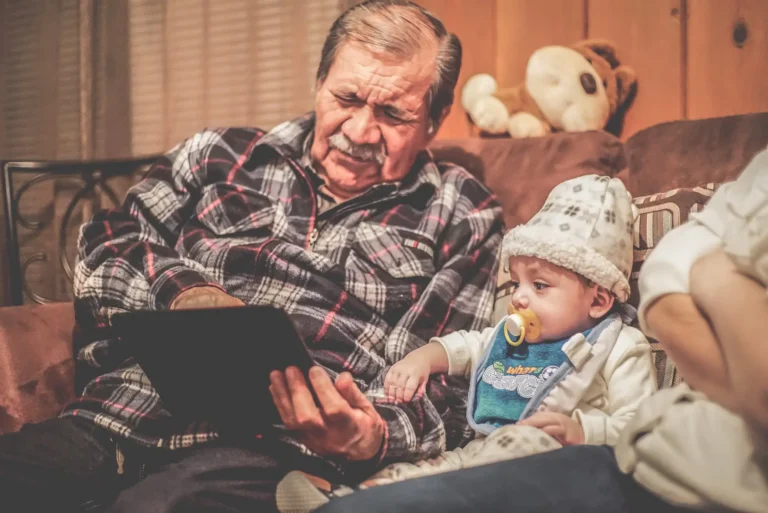Families often find themselves in a position where they need to care for a loved one at home. Whether it’s due to medical conditions or simply the desire to provide comfort and support, being a family caregiver is both rewarding and challenging. If you’re based in Georgia and looking for support as a caregiver, this guide will help you understand the process, highlight essential resources, and explain how to ensure the best outcomes for your loved ones.
What Is a Family Caregiver?
A family caregiver provides care for a loved one who cannot fully care for themselves. This could include assisting with daily activities, coordinating medical appointments, or simply offering a sense of companionship. Family caregiver Georgia are critical in ensuring that individuals receive quality in-home care without the need for institutional settings.
Why Family Caregiving Matters
Being a family caregiver goes beyond basic healthcare. It fosters a nurturing, familiar environment where loved ones feel supported emotionally and physically. Unlike impersonal care settings, caregivers deliver tailored, compassionate attention that promotes well-being while strengthening family bonds.
Georgia is no exception to the rising need for family caregivers. With expanded access to programs that support in-home care, families are finding new opportunities to provide quality care for their loved ones.
Key Benefits of Being a Family Caregiver in Georgia
Georgia offers unique opportunities for family caregivers, including resources and services tailored to a wide range of needs. Here’s what you can look forward to when becoming a family caregiver in Georgia:
- Familiar Environment: Your loved one gets to stay in the comfort of their own home, which leads to improved mental health and emotional well-being.
- Access to Resources: Georgia provides access to specialized programs to help family caregivers provide high-quality care.
- Strengthened Bonds: Family caregiving strengthens relationships, offering meaningful experiences as you care for your loved ones.
How to Become a Family Caregiver in Georgia
To provide exceptional care, it’s important to follow a structured process. Becoming a family caregiver in Georgia usually involves these steps:
1. Identify Needs
The first step is to assess the needs of your loved one. This might include help with mobility, managing medical conditions, or simply offering emotional support. Once you’ve identified the level of care required, you can create a care plan tailored to their unique situation.
2. Contact a Home Health Agency
Reach out to a reputable in-home care provider in Georgia. These agencies typically offer assessments and connect you with resources like skilled nursing services, caregiver training, and community programs.
3. Develop an Individualized Care Plan
A great care plan is the foundation of successful family caregiving. Work with professionals to build an individualized plan that outlines the type of care required, schedules, and any additional services that might be beneficial for your loved one.
4. Match with a Skilled Caregiver When Needed
While family caregivers handle much of the day-to-day care, some situations may require professional assistance. Skilled nurses or certified caregivers can step in to provide specialized support.
5. Understand Available Programs and Resources
Georgia’s state programs, such as the Georgia Pediatric Program (GAPP), offer assistance for families providing care to medically fragile children. Be sure to explore these and other options to ease the caregiving process.
6. Monitor and Adjust Care
Family caregiving is dynamic. Regularly assess the care plan and make adjustments based on your loved one’s evolving needs. Work closely with healthcare providers for guidance.
Resources for Family Caregivers in Georgia
Georgia has a wide variety of resources to help family caregivers succeed in providing exceptional care. Here are a few examples:
- Training Programs: Many agencies offer training for caregivers to build critical skills. This can range from basic patient care to managing complex needs.
- Support Networks: Georgia has an abundance of caregiver support groups and local organizations to connect with others sharing similar experiences.
- Financial Assistance: Certain programs provide financial support to offset costs associated with caregiving.
- Access to Skilled Care Teams: Many families in Georgia rely on professional caregivers and nurses to supplement the care they provide.
Ensuring Quality of Life for Your Loved One
Caring for your family member is a meaningful responsibility that can transform their quality of life. From assisting with routine tasks to being a source of emotional support, your role as a family caregiver is invaluable.
Key factors for providing exceptional care include consistent communication, active monitoring of your loved one’s well-being, and accessing additional support when necessary. Equally important is maintaining balance to look after your own physical and mental health.
Final Thoughts
Becoming a family caregiver in Georgia ensures your loved one receives the care and comfort they deserve. It strengthens family ties, gives peace of mind, and allows your loved one to live in a familiar environment. With access to resources, programs, and professional assistance, caregiving becomes a less daunting and more fulfilling experience.
If you’re ready to explore caregiver services or need guidance on where to start, reach out to a local in-home care provider today. Taking that first step could make all the difference for you and your loved one.


